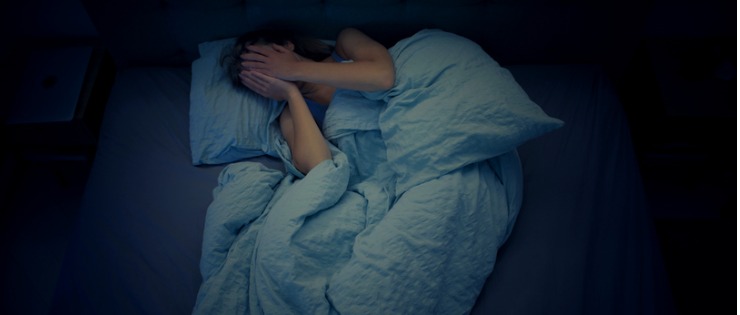
Australians who are struggling to make ends meet are missing out on the recommended hours of sleep for a physically and mentally healthy life.
A survey conducted by CoreData WA on behalf of HIF found a clear link between poor health and lower disposable income, and quality of sleep.
The inaugural HIF Sleep Index Survey of 1,000 Australians and more than 1,000 HIF members identified common routines and practices that helped or hindered sleep while also revealing personalised sleep scores.
While Australians’ sleep was found to be sub-optimal, the survey also found those with no disposable income are significantly more likely to have a low sleep score (23% vs. 9% of those with at least some disposable income). They are also almost twice as likely to get nowhere near enough sleep than others (31% vs. 17%) and sleep quality is more often poor or terrible (58% vs. 42%).
Poor physical and mental health is more common among those with no disposable income, and poor health status shows similar impact on sleep as lack of disposable income.
HIF CEO Justin James said the snapshot of how Australians – including HIF members - are sleeping is alarming in light of the fact sleep is considered one of the three key pillars of health, along with diet and exercise.
“Getting a good night’s sleep is so important for our physical and mental health so the results of this survey, while perhaps not surprising, make for difficult reading,” Mr James said.
“If you are regularly getting too little sleep, it can have a very serious impact on your wellbeing. Clearly if cost of living is keeping people up at night it shows there is a vicious cycle that needs to be broken.”
The HIF Sleep Index Survey also found most Australians are in sleep deficit – especially on workdays. The average Australian views eight hours sleep as 'ideal' each day/night. However, most are getting far less – especially workers and students with one in four (25%) people who are either working or studying sleeping no more than six hours on days when they work. Those not currently in employment, like retirees and stay at home parents, are getting 7.4 hours on a typical day.
And while nearly two in three (65%) Australians prioritise sleep, few are very consistent with their bedtime routine (25%) or sleep pattern (i.e. when they go to bed and wake up each day) (16%) because they are getting distracted and losing track of time (41%) or just finding it hard to maintain consistency, despite trying (30%).
Other key survey findings include:
- Digital relaxation is hampering sleep
More than two in five Australians (46%) read on a device, listen to music or a podcast and/or watch a show on a device in the hour immediately before they go to sleep. However, those reading on a device before bed are much more likely to wake up feeling like they didn't get enough sleep.
- 4.8 million Aussies are using a sleep app, monitor or wearable
Nearly a quarter of Australian adults (24%) are using these devices, typically to check how long they slept (50%) but also to review their deep/light sleep (35%) or how often they woke up (28%). Sleep apps and wearables are slightly more common among those who say they don't get enough sleep (26%) than those who get an ideal amount (21%), but there are no differences in sleep quality or scores between users and non-users.
The survey also found four distinct groups, or personas, that Australians typically fall into when it comes to sleep. HIF will be using these to create tools to help support members in getting a better night’s sleep.
Dr Jennifer Walsh, Director of the Centre for Sleep Science at the University of Western Australia, said the HIF Sleep Index Survey showed there was still a long way to go in educating Australians about sleep.
“This survey found that while most Australians can correctly identify common sleep ‘myths’, many lack knowledge about best sleep practice,” Dr Walsh said.
“Almost two in three – or 62% - are not aware that while you can catch up on sleep, you can’t bank it while almost a quarter of the respondents don’t agree most adults need at least seven hours sleep a day, preferably at night.
“It’s great to see a health insurance provider like HIF leading the charge in putting sleep back on the agenda and encouraging everyone to make it a priority.”
Dr Walsh was an advisor on the survey, alongside Dr Kathleen Maddison, an Academic and Research Fellow at the Centre for Sleep Science, UWA; Michael Gradisar, Professor, Director and Clinical Psychologist at the Child and Adolescent Sleep Clinic at WINK Sleep in Australia and Head of Sleep Science at Sleep Cycle AB; and David Beard, an accredited exercise physiologist specialising in metabolic health and Fellow of the Australasian Society of Lifestyle Medicine.
HIF will use the findings of the Sleep Index Survey to help better educate members on how to get a better night’s sleep and introduce products and services across its various levels of health cover for those struggling to get the recommended hours of shut eye.
View the full Sleep Index report here.